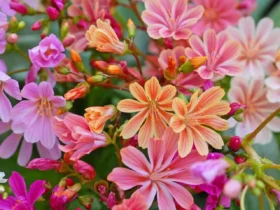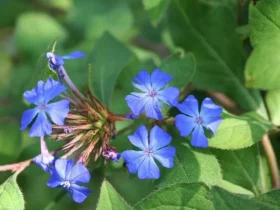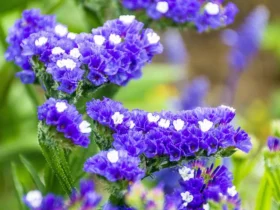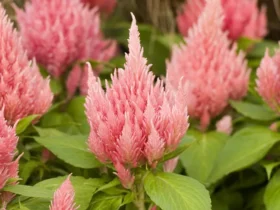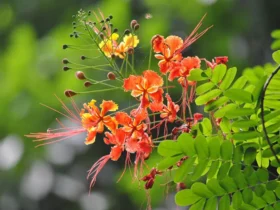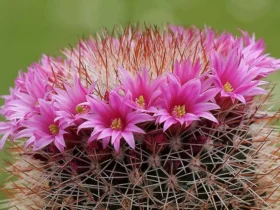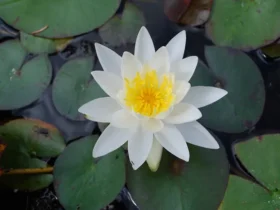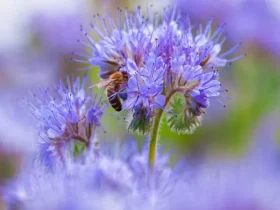Roses are a symbol of enduring love, intense passion, deep affection, and sincerity. They represent the ultimate expression of true and complete love. This is why roses are often chosen to be given to those who are cherished and loved dearly in life.
Unlike other types of flowers, a rose garden is truly captivating. Its vibrant colors and diverse shapes have the ability to mesmerize, inspiring a deeper understanding of this particular flower. Here are some essential and informative details about roses that will enhance your appreciation for them.
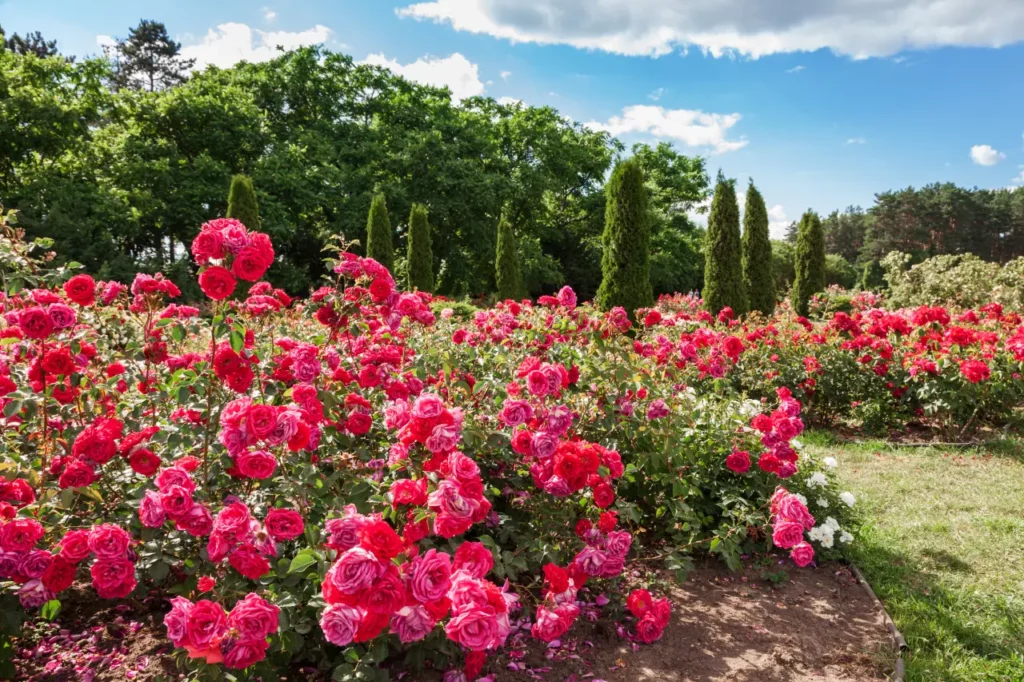
Around the world, there are numerous beautiful and distinct rose varieties. They offer a wide array of types, sizes, colors, and morphologies. Roses have held a special allure from ancient times to the present day, earning them a cherished place in the hearts of people worldwide. These flowers are not only found in humble gardens but also deeply intertwined with cultural and artistic expressions. Notably, literature and music increasingly reflect the profound influence of roses on our daily lives.
Roses exhibit a broad spectrum of colors, each carrying its own significance. Red roses symbolize love and romance, while pink roses convey admiration and gratitude. White roses signify purity and innocence, and yellow roses symbolize friendship and joy. Additionally, there are unique varieties like lavender roses, which evoke enchantment and love at first sight. With their elegant shape and captivating fragrance, roses bring forth exquisite beauty. They are often hailed as the queen of flowers, not only admired for their aesthetics but also imbued with symbolic meanings. These beloved flowers hold a special place in our country and are highly favored. Roses captivate individuals of all ages, appealing not only to those with a natural affinity for them but to everyone.
Beyond their beautiful colors, roses come in various shapes and sizes. Some boast large, fully bloomed petals, while others exhibit delicate and intricate blooms. Certain roses have a high petal count, creating a dense and opulent appearance, while others exhibit a more relaxed and natural form.
The origin of roses
What is the origin of roses? Roses have been domesticated for a very long time, but it was China that first introduced these flower varieties to other countries, including those in Europe. Therefore, most modern rose varieties can be traced back to that region. Roses are a collective term for flowering plants that come in the form of shrubs or climbers. They belong to the genus Rosa, which is a large family within the plant kingdom known as Rosaceae.
Roses are flowers that exude pure beauty. They possess delicate charm with a wide range of colors, distributed across various regions from temperate to tropical zones. The majority of roses originate from Asia, with a small number coming from different native regions such as Europe, North America, and West Africa.

Characteristics of roses
Roses belong to the group of low shrubby woody plants, characterized by multiple branches and curved thorns. The leaves of roses are pinnately compound, with serrated edges and feather-like arrangement. Depending on the variety, the leaves can have deep or pale green coloration, with varying degrees of serration. Roses are hermaphroditic flowers, meaning they have both male and female reproductive organs within the same flower.
Roses have a distinct, gentle fragrance that is unique to them. It delicately permeates the surrounding space. The petals of roses are soft and delicate, making them prone to being easily crushed. The flowers are fragrant and come in a diverse range of colors, including pink, white, yellow, and red. The flower base forms a cup shape. The fruit, called a hip, forms and clusters together within the thickened flower base.
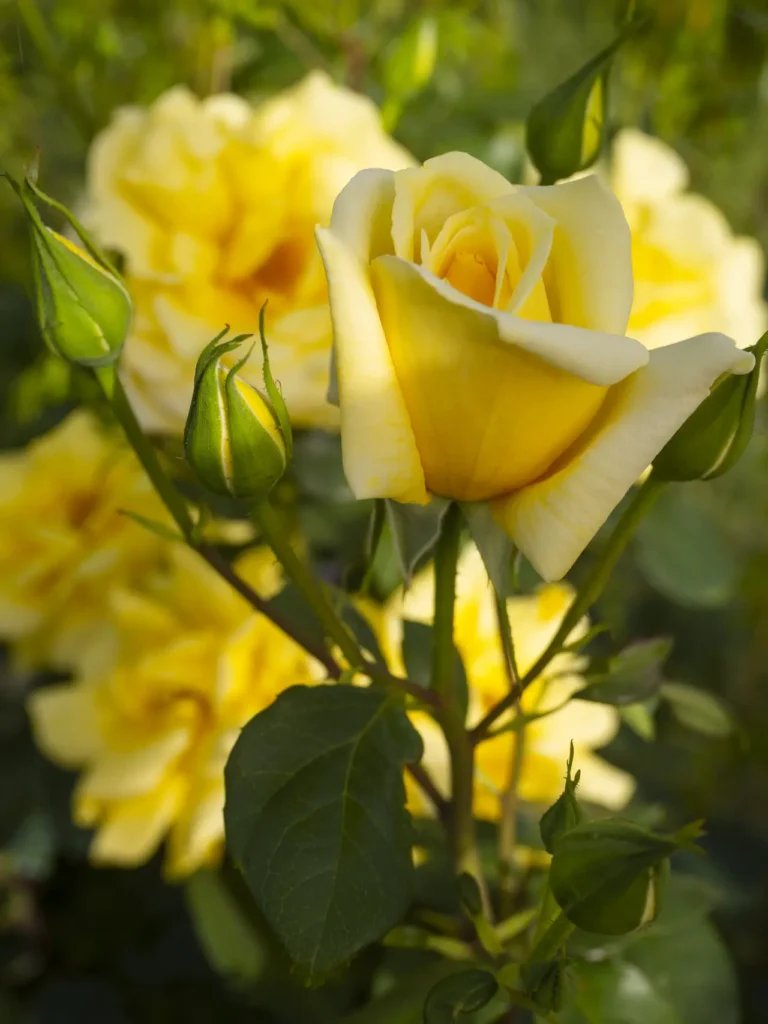
How many types of roses are there?
Roses are a diverse species with many different flower forms and sizes, resulting in various classifications. One of the basic types of roses is climbing roses. Climbing roses are characterized by their small branches that are in the developmental stage of the plant. They can grow up to 1.8 to 6 meters and are trained to climb walls, trellises, and fences.
Their smaller stems should be trained horizontally to encourage more abundant flowering. On the other hand, there are also shrub roses. These are smaller plants that are commonly used for hedges or container planting. They are compact and suitable for growing in pots, on balconies, or rooftops. Roses are easy to grow and care for, making them accessible to everyone. They are a suitable choice for homes, gardens, public spaces such as parks, and even tourist destinations.
What is the difference between antique roses and modern roses?
Some people choose to go against the modern trend and opt for antique roses. With their delicate and old-fashioned style, these roses carry a sense of elegance and grace. When we think of antique roses, we immediately associate them with their alluring fragrance. These plants grow vigorously, tolerate cold temperatures well, and produce flowers in various sizes that are large and beautiful.
On the other hand, modern roses of today enhance their inherent beauty. They create even more allure when the blooms are a blend of two colors. The color range of modern roses is diverse, yet it does not diminish the naturally existing fragrance. These plants bloom continuously and are generally more affordable than antique roses. They also tolerate cold temperatures well and have a longer-lasting bloom.
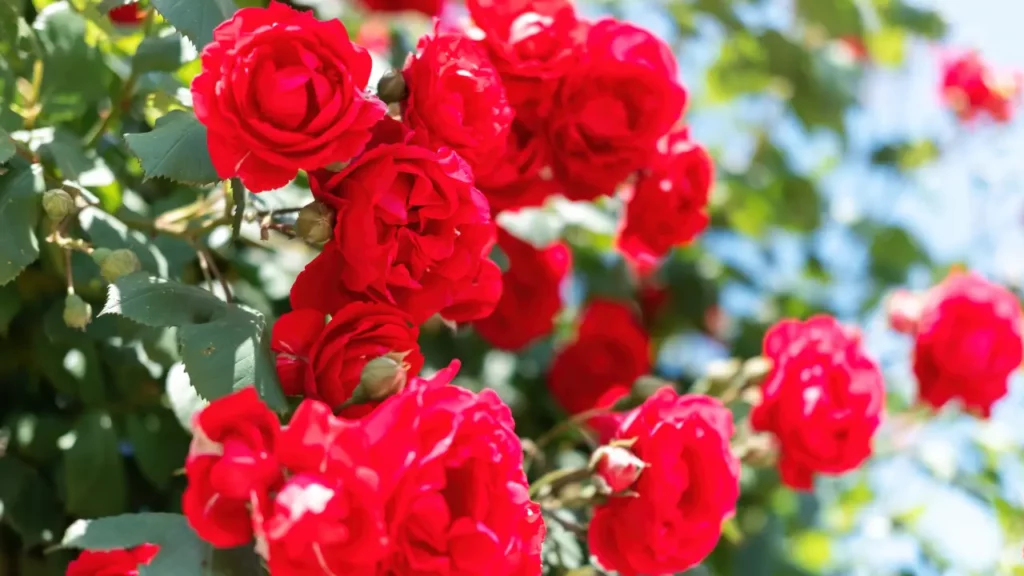
The meaning of roses
The significance of roses holds profound meaning within human relationships, acting as a conduit for unspoken words that express love and affection between individuals. Roses intertwine emotions, seeking the ultimate fulfillment in love, creating a truly magnificent experience.
Each rose color carries a unique meaning, encompassing various emotional depths in people’s lives. Red roses symbolize intense and sincere love, akin to a vibrant, passionate flame that ignites strong emotions. They bring people closer, fostering deeper love, appreciation, and cherished connections. Among the diverse rose varieties, yellow roses hold multiple meanings, reflecting nuanced emotions in human relationships.
Beyond being a symbol of passionate and vibrant love, yellow roses can also represent the progression of care within a relationship or convey the closeness of friendship. They are often encountered during significant moments of love. Blush roses exude a romantic and gentle aura, embodying blissful happiness. Roses of different colors are associated with distinct emotional levels. They not only hold special significance in love but also symbolize deep friendships, loyalty, and eternity. When it comes to friendship, orange roses are often chosen to express admiration for those around us.
Roses offer incredibly meaningful gifts, expressing gratitude and respect. They also represent our appreciation for parents, teachers, and mentors who have imparted wisdom upon us. Furthermore, roses serve as an endless source of inspiration for poets, writers, and musicians, inspiring timeless artistic creations. In life, roses can possess healing properties and enhance personal beauty. They hold significant value as a gift, particularly for women.
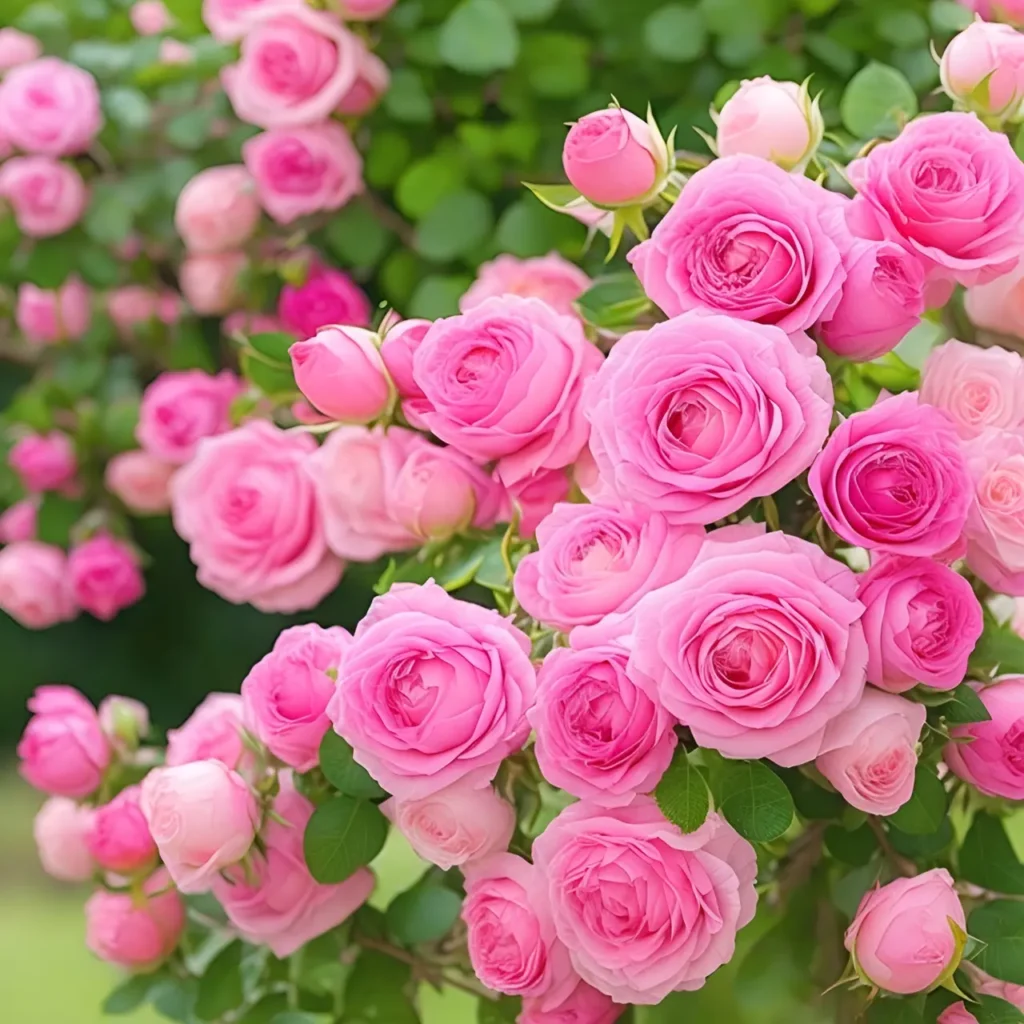
Meaning of roses according to color
- Red roses: The color red symbolizes passionate, intense, and romantic love. It represents sincere affection and deep emotions.
- Pink roses: The color pink represents love, sweetness, and romantic gestures. It is often used to convey respect and special affection towards the recipient.
- White roses: The color white symbolizes purity, innocence, and sincerity. It is often used to express true love, loyalty, and high regard.
- Yellow roses: The color yellow represents friendship, joy, and happiness. It signifies brightness and optimism in relationships and is commonly used to congratulate and share joy.
- Blue roses: The color blue represents freshness, hope, and growth. It is often used to symbolize budding new love and aspirations in life.
- Black roses: The color black carries the meaning of rarity, mystery, and remembrance. Although not naturally occurring, black roses are often used to signify longing and remembrance of past memories.
The meaning of roses based on the quantity of flowers:
- 1 rose: symbolizes uniqueness. In their heart, there is only the image of you. It also conveys the message, “Love at first sight.”
- 2 roses: represents deep affection.
- 3 roses: a firm affirmation of “I love you.”
- 4 roses: signifies that our love is eternal and no one can separate us.
- 5 roses: expresses sincere love without ulterior motives or deceit.
- 6 roses: What is the meaning of 6 roses? In love, one must know how to love and forgive each other.
- 7 roses: the meaning of 7 roses symbolizes infatuation and being immersed in feelings.
- 8 roses: a gesture of gratitude towards the other person for always being there and encouraging each other.
- 9 roses: signifies enduring and everlasting love.
- 10 roses: if you want to express that the love between the couple is “perfect and beautiful.”
- 11 roses: You are the treasure of the other person.
- 12 roses: the meaning of 12 roses represents the enduring love between both parties throughout the years.
- 20 roses: represents trust in a sincere love.
- 24 roses: the meaning of 24 roses signifies that you are always in the other person’s mind.
- 99 roses: a promise that our love will never fade.
- 999 roses: Forever love for you.

The meaning of roses for each occasion:
- The meaning of giving roses on Valentine’s Day: Roses symbolize romantic love and passion. Giving roses on Valentine’s Day expresses affection and love towards someone special.
- The meaning of giving roses on March 8th (International Women’s Day): Roses are often given to celebrate and appreciate the women in our lives. It is a gesture of respect, admiration, and recognition of their contributions and achievements.
- The meaning of giving roses on Teacher’s day: Roses are given to express gratitude and appreciation to teachers for their dedication and guidance in shaping the future generation. It is a way to acknowledge their hard work and the impact they have on students’ lives.
- The meaning of giving roses on birthdays: Giving roses on someone’s birthday is a way to celebrate their special day and show love, affection, and well-wishes. It is a gesture of happiness and appreciation for the person’s presence in your life.
The meaning of roses for different recipients
- The meaning of giving roses to a lover: Roses symbolize love and passion. Giving roses to a lover expresses romantic feelings, affection, and a deep connection between two people.
- The meaning of giving roses to a mother: Roses are a symbol of love and appreciation. Giving roses to a mother is a way to express gratitude, admiration, and love for her nurturing and caring role in one’s life.
- The meaning of giving roses to a wife: Roses represent love, beauty, and romance. Giving roses to a wife signifies deep affection, devotion, and appreciation for her as a life partner.
- The meaning of giving roses to teachers: Roses are a gesture of respect, gratitude, and appreciation for the guidance and knowledge that teachers impart. It symbolizes the recognition of their dedication and the impact they have on their students’ lives.
- The meaning of giving roses to friends: Roses can represent friendship, joy, and appreciation. Giving roses to friends signifies the value of their friendship and the happiness they bring to one’s life. It is a way to express gratitude and strengthen the bond of friendship.
Taking care of roses
Caring for roses is not too complicated, but it requires knowing how to care for them to keep the plants healthy, blooming, and achieving the desired results. Fertilizing the rose plants is an essential part of the planting and caring process. After planting, fertilizing helps the plant develop a strong root system and vibrant flowers by improving nutrient absorption and ensuring safety.
Roses are also water-loving plants, so they need regular watering. It’s best to water the plants gently with a sprinkler in the morning. On hot days, additional watering in the cooler evening hours is recommended, but not too late. Avoid leaving the leaves and buds wet overnight, as it can create a favorable environment for pests and diseases. When the plants have grown well and have many intertwining branches, it’s advisable to regularly prune and remove any damaged stems or leaves. When pruning, make sure to cut just above a leaf set to encourage the growth of new branches, and from each branch, new buds will produce fresh flowers.
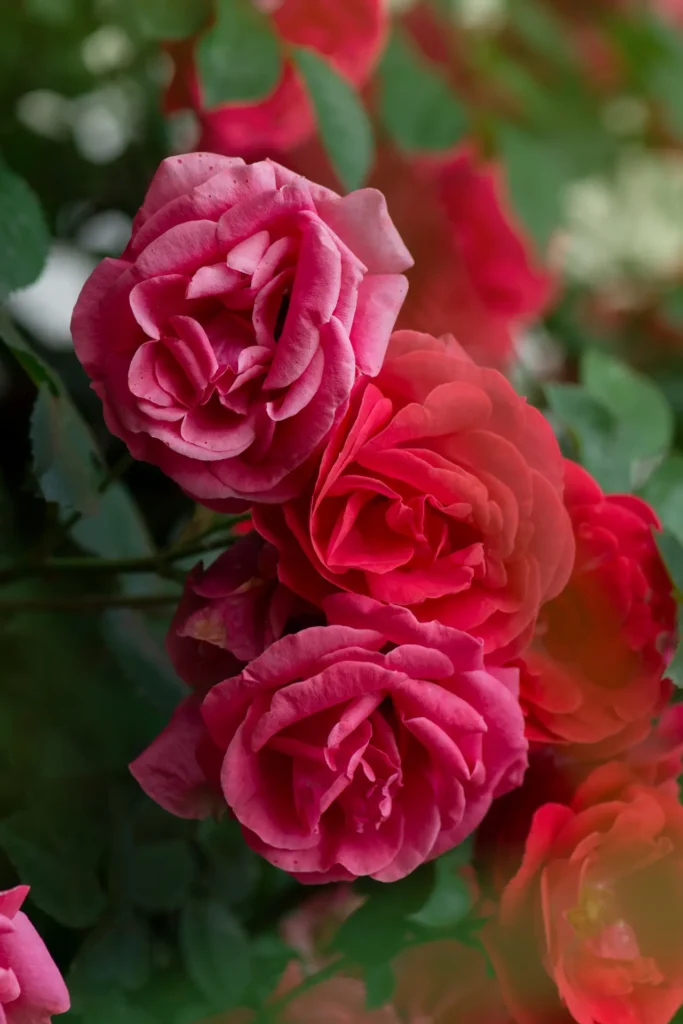
How to plant roses
As you may know, there are several methods to plant roses, such as growing from seeds, propagating through stem cuttings, dividing bushes, or using grafted plants. First, place a layer of dry charcoal or gravel at the bottom of the pot to ensure good drainage and create a breathable environment, avoiding waterlogging the roots. When planting the rose bush, press the soil firmly with your fingers to secure the roots. Keep the plant in a cool and shaded area for 3-5 days, watering sparingly to maintain a moderate level of moisture in the soil. Afterward, gradually expose the plant to sunlight and increase the watering amount.
If using grafted rose plants, you can insert a stake in the center of the pot to provide support and stability during windy conditions, preventing any damage to the young and delicate roots. For added protection against rodents, you may consider placing a few stakes around the pot to deter them from gnawing on the plant.
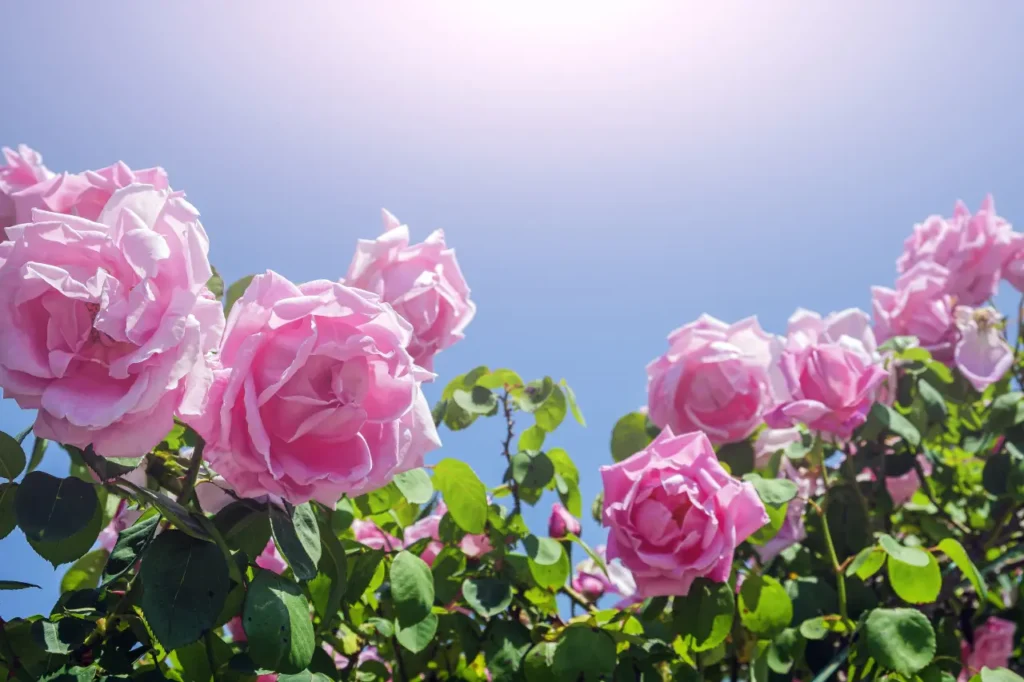
How to prevent diseases in roses
Roses are prone to diseases when grown in conditions with insufficient sunlight. Overwatering or excessively humid environments are also common causes of diseases in roses. Fungal diseases and attacks from harmful insects can weaken the plants over time. Here are some common diseases that roses may encounter, along with preventive measures to keep your rose garden free from these ailments, such as powdery mildew, black spot, rust, aphids, and other types of diseases.
